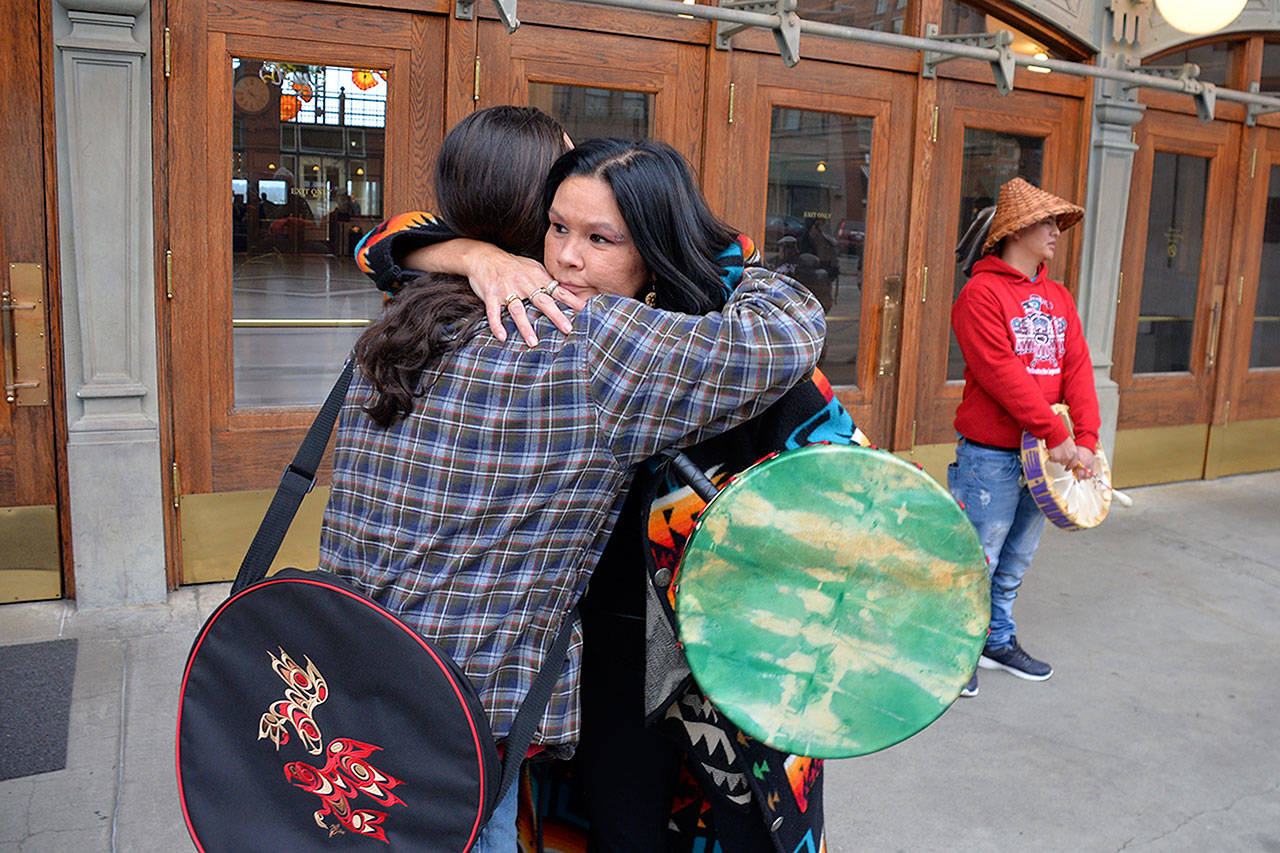Three people who sued the City of Aberdeen in federal court were given access to the city’s riverfront homeless encampment on Wednesday by a federal judge who had constitutional concerns with the city’s restrictions to the site.
At a hearing in Tacoma, U.S. District Judge Ronald B. Leighton said the plaintiffs are allowed to enter the property and the city’s permit system for restricting visitors needs to change.
“This system, this structure is not going to survive,” said Leighton, who later added, “This is run like a jail right now.”
Mayor Erik Larson declined to discuss the judge’s comments when contacted Friday morning, simply acknowledging that “the judge has asked the parties to come to a resolution, and we’ll be working to do so.”
Sarah Monroe, an Episcopal priest who has served as a pastor for homeless people at the riverfront, filed the lawsuit against the city along with plaintiffs Tim Quigg and Apryl Boling in response to the city’s new permit system restricting who can visit the camps. Quigg has been a homeless activist and has visited the camp often to bring supplies. Boling has relatives who live there and she visits them often.
Since the city took ownership of the property in August, Larson has required anyone visiting to first get city approval. This includes service providers, family and friends of people living there. Those who don’t get permission could be cited for trespassing if they enter, Larson has said.
The plaintiffs say this system violates their first amendment rights of freedom of speech and religion. Monroe — who was denied access for not providing a detailed schedule — said she needs to respond during emergencies that can happen at any time. She has continued to provide service to the campers and entered the property despite fearing she could be arrested.
The lawsuit requests the plaintiffs get access to the camps, and asks for compensatory and punitive damages to be determined by the court. This suit only applies to those looking to visit and assist people on the campsite, and doesn’t deal with the more than 100 homeless people who got the city’s permission to live there.
Wednesday’s hearing was to hear the plaintiffs’ request for a temporary restraining order on the city’s enforcement of its rules.
Leighton never specifically referenced the request, but he essentially granted what the plaintiffs wanted by giving them access to the camps and telling city officials their system of only allowing certain people on the property is wrong.
“We don’t mess with the Constitution very often. We do not want to tread on anybody’s rights,” the judge said.
The judge requested the city eliminate its current permit system and replace it with something the city “can be proud of” that satisfies safety concerns while also allowing visitors. He suggested the city instead use policies like restricting what times people can enter or not allowing people in certain areas on the property that are more dangerous.
“I’ll give you guys the chance to wordsmith it, and if not, I’ll come up with something on my own,” Leighton said to the attorneys.
When the lawsuit was originally filed Nov. 19, Larson said if the court sided with the plaintiffs, the city would “pursue our other rights” to remove individuals from the property and close it off to any access. On Friday, he declined to say if the judge’s comments would expedite the city’s plans to clear the site.
During her defense, Aberdeen City Attorney Patrice Kent said the original goal was to improve safety, and agreed with the judge to work on revising the policies going forward.
“The city was attempting to have a humane response by not kicking people out immediately upon owning the property,” Kent said during the hearing. “The idea was to have specific laws that included law-abiding behavior, and restricting access. Clearly there is a need to improve the process we have developed.”
Another lawyer for the city, John Justice, said he believes there are benefits of having the permit system.
“It does provide that opportunity to say, ‘Here’s the rules, and if you abide by them and tell us why you’re going there, you can enter the property,’” said Justice. “That’s where it’s hard for me to envision a good way for the city to interface with people and just say, ‘Here’s the restrictions if you want to enter.’”
The plaintiff’s attorney, Todd Maybrown, said he would agree to work on a solution with the city, but said he was concerned that Larson “has other goals in mind” for managing the property.
After the hearing, Quigg described the outcome as “a win for the homeless,” and Monroe said she looks forward to continuing to provide service, and is “happy I don’t get arrested for visiting my congregation.”



